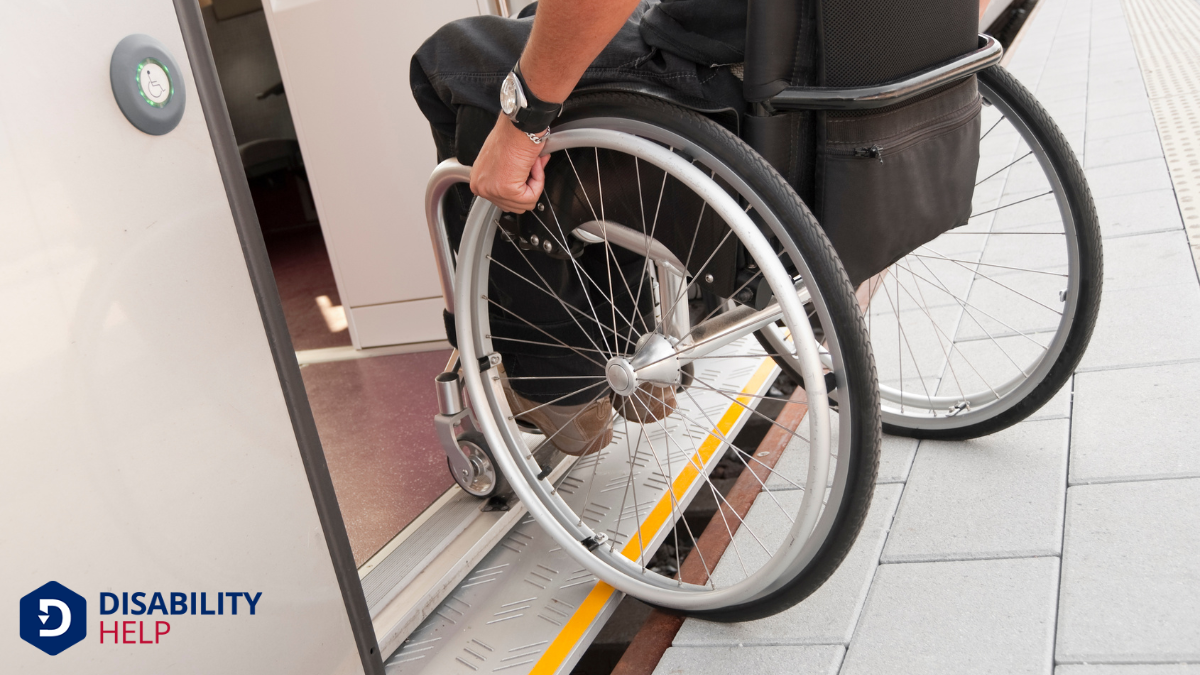The Americans With Disabilities Act (ADA)A U.S. law that prohibits discrimination against individuals with disabilities in all areas of publi... is an essential piece of legislation that helps us guarantee equal opportunities and access for everyone, regardless of their abilities. It tackles discrimination across various sectors, from employment to public services and beyond. By mandating reasonable accommodationsModifications or adjustments in healthcare settings to support patients with disabilities. and accessibilityThe design of products, devices, services, or environments to be usable by people with disabilities...., the ADA empowers individuals with disabilities to lead more independent and fulfilling lives. But how exactly does it achieve this? Let's explore the impact and intricacies of this important law.
Key Takeaways
- The ADA prohibits employment discrimination against qualified individuals with disabilities.
- State and local governments must ensure accessible public services for disabled individuals.
- Public accommodations are required to meet ADA standards for accessibility and inclusivity.
- Telecommunications services must be accessible to individuals with hearing and speech disabilities.
- Public transportation systems must provide accommodations like ramps and priority seating for disabled individuals.
Ensuring Equal Employment Opportunities
When we think about equal employment opportunities, it’s important to understand how the Americans with Disabilities Act (ADA) plays a role in leveling the playing field. This landmark legislation prohibits discrimination against individuals with disabilities in all aspects of employment. It guarantees that qualified candidates aren't overlooked due to physical or mental impairments.
By requiring employers to provide reasonable accommodations, the ADA helps create an inclusive workplace where everyone can thrive. We see firsthand the positive impact this has on job seekers with disabilities. Employers benefit, too, by fostering a diverse workforce that brings varied perspectives and talents.
As we continue to advocate for equality, understanding the ADA’s role in employment is vital. It empowers us to support inclusive hiring practices in our workplaces.
Enhancing Access to Public Services

As we embrace inclusive hiring practices, it's equally important to contemplate how the ADA enhances access to public services for individuals with disabilities.
The ADA mandates that state and local governments guarantee their services, programs, and activities are accessible to everyone. This includes making modifications to policies, practices, and procedures when necessary to avoid discrimination.
For example, public transportation systems must offer accommodations, such as wheelchair-accessible vehicles, assuring those with mobility impairments can travel independently.
Public entities are also required to communicate effectively with individuals who've hearing, vision, or speech disabilities through auxiliary aids and services.
Improving Accessibility in Public Accommodations
While public services play an essential role in accessibility, improving accessibility in public accommodations is equally important for truly inclusive communities. The ADA sets standards to guarantee that places like restaurants, hotels, and theaters are accessible to everyone.
We can support these efforts by advocating for ramps, wider doorways, and accessible restrooms. It’s important to take into account the needs of people with various disabilities, including mobility, vision, and hearing impairments.
Let’s also focus on training staff in these places to assist those with disabilities effectively. When we actively engage with local businesses to prioritize accessibility, we help create spaces that welcome all individuals.
Strengthening Telecommunications Access
Creating inclusive communities doesn't stop at improving physical spaces; it extends into the domain of telecommunications access. The Americans With Disabilities Act (ADA) guarantees that everyone, regardless of ability, can access essential communication services. This includes making certain that telephone services are available to individuals who are deaf, hard of hearing, or have speech disabilities through provisions like Text Telephone (TTY) and relay services.
We know how crucial staying connected is in today’s world. The ADA mandates that public service announcements and emergency alerts are accessible to everyone.
Addressing Discrimination in Transportation

Despite significant strides in accessibility, discrimination in transportation remains a pressing issue we must confront. The ADA mandates that public transportation systems, like buses and trains, accommodate disabled individuals. We see this through the requirement of lifts, ramps, and priority seating.
However, the reality is that not every system fully complies, leading to barriers that restrict mobility.
As a community, we must advocate for improvements and hold transit authorities accountable. Reporting non-compliance and supporting policies that enhance accessibility are vital steps.
Let’s work together to guarantee that transportation is truly inclusive. By raising our voices, we can help dismantle these barriers.
Let’s aim for a future where everyone travels with dignity, regardless of their abilities. Our journey toward equality continues.
Frequently Asked Questions
How Does the ADA Define a Disability?
We define a disability under the ADA as a physical or mental impairmentA loss or abnormality of a body structure or function, whether physical, mental, or sensory, often a... that substantially limits one or more major life activities. This definition helps us understand eligibility for protection and guarantees everyone gets the support they need.
What Is the Process for Filing an ADA Complaint?
Let's explore filing an ADA complaint. First, we identify the issue and gather evidence. Then, we submit a complaint through the Department of Justice website or by mail. It's important to act promptly to guarantee our rights are protected.
Does the ADA Cover Housing Accommodations?
Yes, the ADA covers housing accommodations. We should guarantee landlords and housing providers comply with reasonable modification and accommodationAdjustments or modifications provided to individuals with disabilities to ensure equal access and pa... requests. Let's advocate for equal accessThe principle that all individuals, including those with disabilities, should have equal opportunity..., guaranteeing everyone enjoys a supportive and inclusive living environment.
Are There Tax Incentives for Businesses Complying With the ADA?
Yes, there are tax incentives! By complying with the ADA, businesses can access credits and deductions. These financial benefits help us offset costs related to enhancing accessibility, making compliance more affordable, and encouraging inclusive practices.
How Does the ADA Impact School Accessibility for Disabled Students?
We guarantee schools accommodate disabled students by requiring accessible facilities and services. The ADA mandates equal access to education, so let's prioritize inclusive environments, guaranteeing every student has the opportunity to learn without barriers.
Conclusion
In conclusion, we've seen how the ADA is an essential force in leveling the playing field for individuals with disabilities. By ensuring equal employment opportunities, enhancing access to public services, improving accessibility in public accommodations, strengthening telecommunications, and addressing transportation discrimination, the ADA empowers disabled individuals to lead fuller lives. Let's continue to support and advocate for these protections, ensuring that inclusivity and equal opportunity remain at the forefront of our society. Together, we can make a difference.






